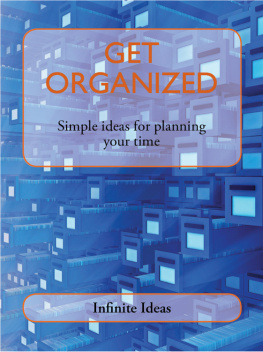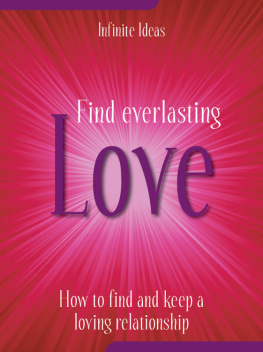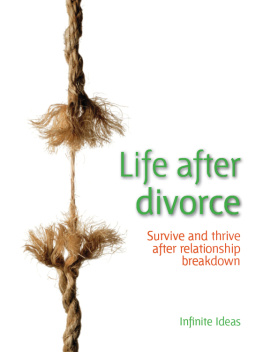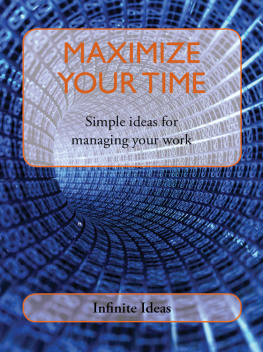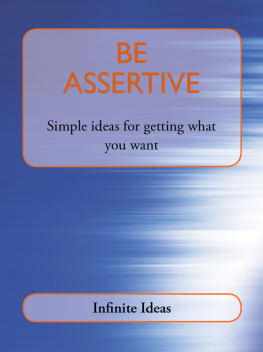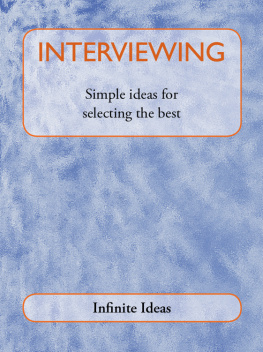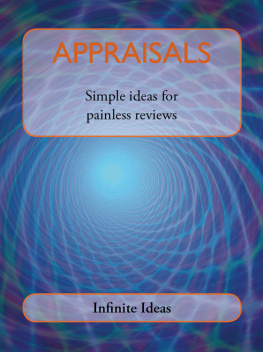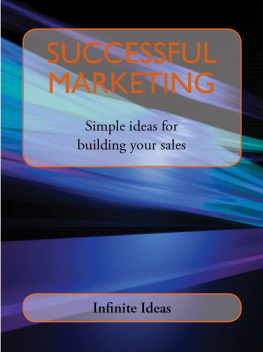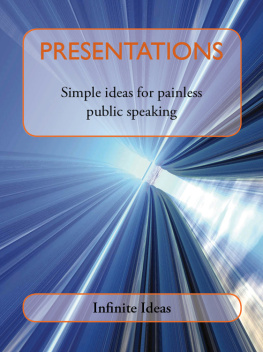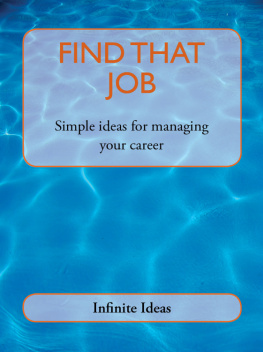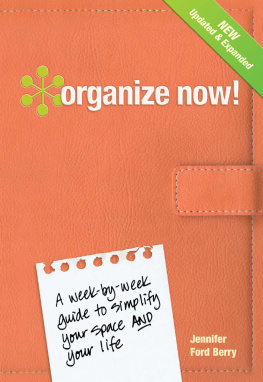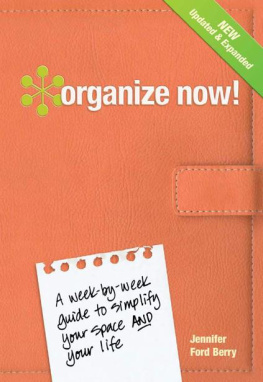Get organized
Simple ideas for planning your time
Infinite Ideas

Welcome
About Get organized
Can you learn how to banish chaos and transform yourself into a paragon of organizational virtue by reading one short book? The answer, quite simply, is YES.
The only bit of padding in the book
This book is written for people with neither the time nor the patience to trawl through acres of jargon and page-filling waffle. Get organized has been written in the belief that you can learn all you really need to know quickly and without fuss. The aim is to provide effective tips you can use straight away.
Is this book for you?
Get organized! is packed full of useful and practical advice for the terminally disorganized. Do you recognize any of these symptoms?
- Disorganized desk and office you never can seem to find that vital bit of paper.
- Life is one long panic everything seems to be top priority. Help what do I do first?!
- Youre incredibly overworked and stressed out but you cant seem to find anybody trustworthy or capable to delegate the work to.
- Its so much easier to put things off until tomorrow youll be in a better frame of mind then.
- You seem to waste most of your life in an endless round of useless meetings and pick up extra work for your trouble.
If any of these strike a chord, this quick, no-bull guide is just what you need.
Kick your bad habits and make your work life calmer and more efficient.
- Use your desk as a tool, not a cluttered dumping ground.
- Meet deadlines by prioritizing your work properly.
- Delegate the right work to the right people in the right way.
- Dont dither, do it now.
- Cut meetings down to size.
- Make the most of the technology at your disposal.
How to use the book
The message in this book is its OK to skim. Its written in a way that allows you to flick through and find the help you most need. Get organized is a collection of hands on tips that will help you become the organized person youve always wanted to be. You dont have to read it all at once or try to do everything advised straight away.
You will find that there are some graphic features used throughout the book:
You?
These mean: Something to think about they set the scene and identify the problems by prompting you to think about situations which will instantly feel familiar.
Act!
With the problem diagnosed, these features give you ideas for on action plan they will help you to change your behavior patterns in a positive way.
Tips
These features appear at the end of each chapter. They are checklists which summarize all of the advice given throughout the chapter. Similar features also appear within chapters which are overflowing with tips!
As you read through the book, you will come across lots of tips and practical advice on how to make more of your time by organizing your work efficiently. You could start by just going straight to any of the boxed features, which will ask you either to think about a problem or to do something about it and give you some ideas. If youre really pushed for time, you can always go direct to the tips at the end of each chapter.
The chapter tip summaries are also a useful reminder of whats where when you come back to look at this book in the future.
Good luck.
1. Clear desk, clear conscience
Whats in this chapter for you
- Why you should have a clear desk
- How to start clearing the mess
- Simple but effective filing systems
- Ten commandments for sorting out your desk life
Take two minutes to look at your desk. Are you proud of it? Is it a model of tidiness and good order? Or is it a hopeless clutter of papers, files, unwashed coffee mugs, and bent paperclips? Does the term the paperless office make you laugh out loud? Look at your in-tray (if you have one). Is it full of genuine things to do or, like many people, are you using it as just another place to dump papers?
Why should you have a clear desk?
I get so overwhelmed with paperwork that I look for any available space to shove it in- or out-trays, the top of the desktop printer, anywhere I can find. Ive also got an impressive collection of old cardboard boxes bulging with unchecked documents.
Pam Flew, accounts administrator
Does this sound familiar? Your desk is your primary workspace. It is, or should be, the engine of your working day, feeding you with relevant and timely activities and helping you to get them done.
You?
A desk should be nothing more than a clearing house of work in progress. It should not become a storage area. What do you see when you look at yours?
Its easy to let your desk become a dumping ground instead of an invaluable tool to help you in your job. It can be a permanent and highly visual reminder of all the jobs you havent done. It can also be a secret place where urgent work gets lost.
If you need some motivation to tidy your desk, consider the reasons why a disorganized and untidy desk is bad news.
An untidy desk is bad for your image
There are times when it is important what other people think about you especially when other people include important clients, colleagues and the boss. No matter what the circumstances, an untidy desk can give the impression that you are a disorganized malingerer.
You think | Others think |
It shows that Im a radical | It shows that s/hes a lazy so and so |
Ive got better things to do | S/he couldnt care less |
It proves Im really overworked | It proves s/hes totally disorganized |
I know where everything is | No wonder s/he never keeps deadlines |
An untidy desk is bad for your work
Messy desks breed lost papers, documents and files. Even in these computer-driven days, most businesses create and distribute lots of paper. Lost or delayed work means lost time and maybe even lost customers. A vast amount of time can be wasted hunting for buried paperwork.
An untidy desk is bad for your health
Dealing with ever-growing mountains of paperwork can lead to increased stress levels and panic attacks. Managing your desk is a vital way of making your workload more manageable.
You?
Still not convinced? Maybe youre one of those who still believes in the hoary old chestnut, tidy desk, sick mind (probably written by a highly efficient and well-organized business guru). OK, maybe putting it in financial terms will convince you to do something about that desk:
- The average person can waste up to one whole day per month in searching for missing information.
- You can gain 12 extra days per year just by clearing your desk. Put in a more negative way, thats 12 paid days wasted. Your boss will notice this.
- MESSY DESKS COST MONEY!
How to start clearing up the mess
I got to work one Monday morning and I saw that my desk was just an ocean of samples, trade magazines, reports and God knows what. Something inside me snapped. I grabbed some bin-bags and just swept it all away. It felt great until two days later when I realized Id also swept away a business card of a possible new supplier Id met socially. I couldnt even remember his company name to try to track him down online.
Richard Selvey, kitchen goods buyer
You can do something about your untidy desk, but first a word of caution. There are some tactics that you should not use. Two approaches in particular should be avoided at all costs.
Next page
